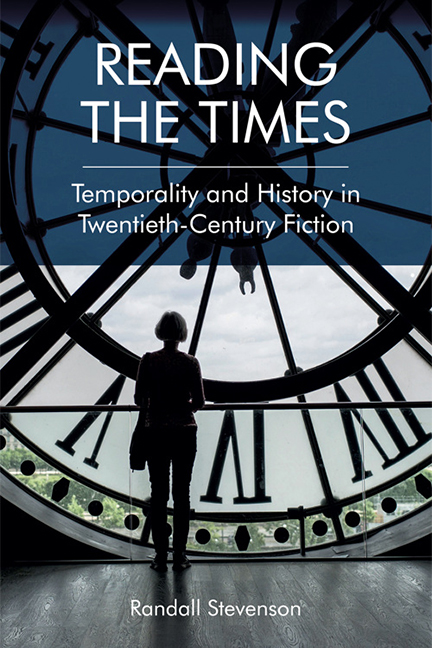Book contents
- Frontmatter
- Contents
- List of Illustrations
- Preface
- 1 Introduction: Picnic Time, Prime Time, Story Time
- 2 ‘All Those Figures’: Joseph Conrad and the Maritimes
- 3 ‘Wheels within Wheels’: D. H. Lawrence, Industrial Time and War Time
- 4 Times in the Mind: Modernism in the 1920s
- 5 Not Like Old Times: The 1930s to Mid-Century
- 6 ‘Time is Over’: Postmodern Times
- 7 Conclusion: Millennial Times, Perennial Times
- Bibliography
- Index
Preface
Published online by Cambridge University Press: 10 November 2020
- Frontmatter
- Contents
- List of Illustrations
- Preface
- 1 Introduction: Picnic Time, Prime Time, Story Time
- 2 ‘All Those Figures’: Joseph Conrad and the Maritimes
- 3 ‘Wheels within Wheels’: D. H. Lawrence, Industrial Time and War Time
- 4 Times in the Mind: Modernism in the 1920s
- 5 Not Like Old Times: The 1930s to Mid-Century
- 6 ‘Time is Over’: Postmodern Times
- 7 Conclusion: Millennial Times, Perennial Times
- Bibliography
- Index
Summary
Mending the clock. Mending the clock – that was the idea.
Joseph Conrad, Lord Jim (1900)A clock has always struck me as something ridiculous, a thoroughly mendacious object, perhaps because I have always resisted the power of time.
W. G. Sebald, Austerlitz (2001)Appearing in novels a hundred years apart, these comments characterise a century of fiction which amended regularly – often radically – temporalities ticked out by the clock, or measured out by the broader evolution of history. Reading the Times assesses these amended narrative temporalities in relation to historical pressures, throughout the twentieth century, which compelled the modern novel's resistance to ‘the power of time’. It also outlines origins of these pressures in the nineteenth century, and considers in conclusion their continuing consequences for the twenty-first.
Eminent commentators on the area might differ in their assessment of the scale of enquiry this aim demands. In Time and Narrative (Temps et récit, 1983–5), Paul Ricoeur identifies fiction in which temporality is unmistakeably an issue: novels such as Virginia Woolf's Mrs Dalloway (1925), which ensure that ‘it is the very experience of time that is at stake’. Ricoeur distinguishes fiction of this kind from the majority of novels: ones which offer ‘tales about time’ only in the straightforward sense that as their narratives develop, ‘the structural transformations that affect the situations and characters take time’. In About Time (2007), on the other hand, Mark Currie considers that fiction's ‘structural transformations’ not only take time, but inevitably entail perceptions about the nature of time and its passage, suggesting that ‘all novels should be viewed as tales about time’.
Reading the Times mediates between these positions, acknowledging that temporality is fundamental to the structuring of all fictional narrative – in ways outlined in Chapter 1 – but that certain novels make this structuring particularly conspicuous, sometimes also discussing explicitly the nature of time and its measurement. Novels of this kind – highlighting in subject or structure the measures of the clock, or the influence of wider movements of history – are the ones principally discussed in the chapters that follow.
- Type
- Chapter
- Information
- Reading the TimesTemporality and History in Twentieth-Century Fiction, pp. vii - xPublisher: Edinburgh University PressPrint publication year: 2017



